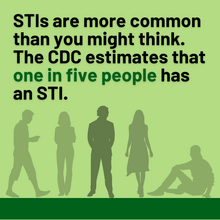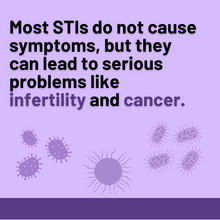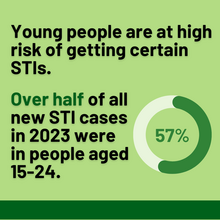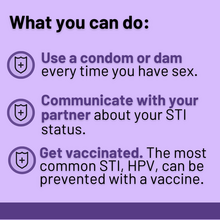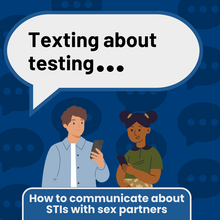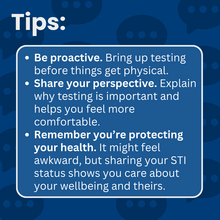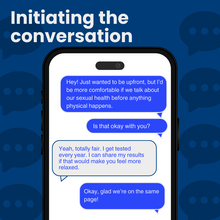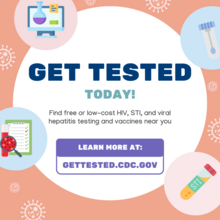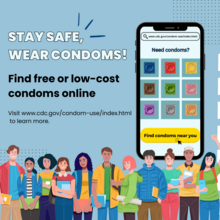STD: Information for Health Care Professionals
Congenital syphilis cases are rising in Wisconsin
The Wisconsin Department of Health Services (DHS) issued a statewide memo to health care providers (PDF) calling for increased awareness and testing for the sexually transmitted infection (STI) syphilis. 2024 STI surveillance data shows a continued rise in congenital syphilis cases in the state. While cases of syphilis overall decreased during 2024, cases of congenital syphilis increased 24% (25 to 31) from 2023 to 2024. By comparison, Wisconsin had an average 0-2 congenital syphilis cases per year in the 2010’s.
Read the DHS news release about the rising cases of congenital syphilis
Do you know how to identify antibiotic-resistant gonorrhea?
Providers and case investigators should assess for suspected treatment failure (STF) among their patients and use tests of cure (TOCs) to assess for persistent cases that may be resistant to treatment.
Learn about antibiotic resistant gonorrhea and what you can do about it
Select a section below to learn more about:
The below protocol was developed by the STI Unit in collaboration with the HIV Prevention Unit and is meant to serve as an overview of rapid syphilis testing and provide guidance to sites that provide the rapid syphilis test along with HIV testing.
Wisconsin has dual sexually transmitted diseases (STD) reporting laws, which means both laboratories and health care providers must submit a report.
Laboratory reporting
Within 72 hours of identifying a case, laboratories should report the case to the patient's local public health department electronically, through the electronic laboratory report (ELR) via the Wisconsin Electronic Disease Surveillance System (WEDSS), by mail, or fax using the Sexually Transmitted Disease Laboratory and Morbidity Epidemiologic Case Report, F-44243 or by other means.
For guidance on filling out the Sexually Transmitted Disease Laboratory and Morbidity Epidemiologic Case Report, F-44243, view the following video on report best practices.
Health care provider reporting
Within 72 hours of identifying a case, health care providers should report to the patient's local public health department electronically, through the electronic provider report (EPR) via the Wisconsin Electronic Disease Surveillance System (WEDSS), by mail, or fax using the Sexually Transmitted Disease Laboratory and Morbidity Epidemiologic Case Report, F-44243 or by other means.
For guidance on filling out the Sexually Transmitted Disease Laboratory and Morbidity Epidemiologic Case Report, F-44243, view the following video on report best practices.
0
Where laboratory and health care providers can report
Laboratories and health care providers can report to the local or Tribal health department of the address of the patient. A listing of state and local health departments with their phone and fax numbers can be visited at the following DHS contact information webpage.
Places for STD testing and treatment in Wisconsin
There are many public clinics around the state, health care professionals can refer patients for STD testing and treat, as needed. Some of these locations offer expedited partner therapy (check the next section), as well. Have patients call the clinics before coming to find out their options.
2021 CDC STD treatment guidelines
This is the most recent version of the CDC (Centers for Disease Control and Prevention) STD treatment guidelines.
These updated guidelines discuss:
- Alternative treatment regimens for Neisseria gonorrhoeae
- The role of Mycoplasma genitalium in urethritis/cervicitis and treatment-related implications (Note: M. genitalium now has an FDA cleared test)
- Diagnosis and treatment for syphilis as well as updated neurological manifestations
- Annual testing for hepatitis C in persons with HIV infection
- Updated recommendations for diagnostic evaluation of urethritis
- Retesting to detect repeat infection.
To order printed copies of the 2021 CDC STI Treatment Guidelines, reach out to Loriann Stanislawski at Loriann.Stanislawski@dhs.wisconsin.gov. The Recommended Treatments for Reportable STIs (PDF) fact sheet provides treatment recommendations from the CDC in a concise and easy to read chart. This may be printed for clinicians to use in daily practice.
If the patient believes their sex partner is unable to be tested and treated, this alternative STD partner management strategy is called expedited partner therapy (EPT) and is recommended by the CDC to prevent reinfection when other management strategies are impractical or unsuccessful.
2009 Wis. Act 280 explicitly allows medical providers to prescribe, dispense or furnish medication for a patient’s partner if diagnosed with trichomoniasis, gonorrhea, or chlamydia trachomatis infection without a medical evaluation of the partner.
EPT patient information sheets
Please provide an EPT patient information sheet for each medication provided. According to 2009 Wis. Act 280, health care professionals must provide an information sheet to the patient receiving an EPT prescription and/or medication and request that the patient give the information sheet to the person with whom the patient had sexual contact.
- Chlamydia, P-00197 – separate sheets for treatment with doxycycline and azithromycin are available in English, Spanish, and Hmong
- Gonorrhea, P-00196 – available in English, Spanish, and Hmong
- Trichomoniasis, P-00198 – available in English, Spanish, and Hmong
EPT guidance for health care professionals and pharmacists
The following resources cover how EPT works, why it is important, and the legislation that protects health professionals providing EPT.
On June 6, 2024, CDC released new Clinical Guidelines on Doxycycline Post-Exposure Prophylaxis for Bacterial Sexually Transmitted Infections (PDF).
These recently published recommendations outline the guidelines for use of doxycycline post-exposure prophylaxis (Doxy PEP) in selected populations. The CDC recommends Doxy PEP to prevent reportable, high incidence bacterial STIs including syphilis, gonorrhea, and chlamydia. Doxy PEP has demonstrated benefit in reducing these infections and represents a new approach to prevention for special populations. The special populations that show benefit in the use of Doxy PEP includes gay, bisexual, and other men who have sex with men (MSM) and transgender women (TGW) with a history of at least one bacterial STI, as noted above, during the past 12 months.
The CDC Clinic Guidelines on Doxycycline Post-exposure Prophylaxis recommend:
- Clinicians provide counseling on risks and benefits of Doxy PEP as a post-exposure prophylaxis to prevent bacterial STIs to MSM and TGW patients who have had a bacterial STI (syphilis, gonorrhea, and chlamydia) diagnosed in the past 12 months.
- Clinicians offer MSM and TGW patients a prescription for Doxy PEP to be self-administered within 72 hours after having oral, vaginal, or anal sex.
- Doxy PEP be prescribed at the recommended dosage of 200 mg of doxycycline (any formulation) once within 72 hours after oral, vaginal, or anal sexual exposure (not to exceed 200 mg per 24 hours).
Doxy PEP should be included as part of a comprehensive sexual health approach including STI screening and treatment, recommended vaccination and linkage to HIV PrEP, HIV care, or other services as appropriate.
To access the full guidelines and recommendations on the use of Doxy PEP, visit the CDC website.
Doxy PEP resources for health care professionals
The following resources cover how EPT works, why it is important, and the legislation that protects health professionals providing EPT.
What are Partner Services?
The primary purpose of Partner Services is to ensure the spread of STDs is contained by contacting the sexual partners of patients and ensuring those partners are tested and/or treated based on confidential conversations with the patient. Partner Services can also assist health care professionals a number of ways when dealing with the treatment and/or further testing of the patient.
The law requires certain STDs are reported to the local health department or to Division of Public Health (DPH). The law also requires DPH and local health departments to follow-up on STDs which are reportable. This may mean someone may contact both health care professionals and patients about the status of the patient.
Who can receive Partner Services?
Anyone who tests positive for a state reportable STD can receive Partner Services at no cost to them.
What services are provided by Partner Services staff to health care professionals?
Partner Services can provide a number of services which may be very necessary for the treatment and follow-up of a patient including:
- Provide health care professionals, who are taking care of the patient, information about previous testing and treatment. This can include if the patient was tested and/or treated for an STD outside of Wisconsin. This is especially helpful if a patient has a previous history of syphilis infection which is here in Wisconsin but not documented or outside of Wisconsin.
- Help contact difficult to locate patients about the need for additional testing and/or treatment.
What services are provided by Partner Services staff to patients?
Health department staff will contact patients and request to either meet in person or talk on the phone. Everything talked about is, by law, CONFIDENTIAL. The Partner Services staff:
- Helps with the needs of the patient including the need for more testing or treatment.
- Discusses what the STD is and how it affects the patient now and in the future.
- Comes up with a plan to contact partners of the patient. Note: when partners are contacted by the Partner Services staff, none of the information about the patient is discussed. It is as if the conversation with the patient never took place.
- Partner Services staff ensures that partners of the patient are also tested and/or treated correctly according to the latest STD treatment guidelines.
- Talk with the patient about risks and how the risks can possibly be reduced in the future.
How can I get more information about Partner Services?
Any health care professional can contact a Partner Services provider listed on this Wisconsin STD Program staff contact information webpage.
Health care professionals interact with patients who have sexually transmitted diseases or need to get tested for sexually transmitted diseases. Helping patients understand how syphilis is spread, what are some of the signs and symptoms of syphilis, different testing and treatment options, and ways of preventing getting syphilis can be important to the health of the patients they are serving. Patients may need additional time to understand these diseases and fact sheets can help them achieve this.
For health care professionals
For patients
These patient-centered fact sheets are available in English, Spanish, and Hmong:
The following fact sheet is in the form of a pocket card, and is meant to be printed for distribution.
Review the Expedited Partner Therapy (EPT) section on this page for links to EPT-related information sheets.
Selective screening criteria for fee-exempt testing through the Wisconsin State Lab of Hygiene (WSLH)
Providers whose institution uses the WSLH for STI testing must submit a laboratory requisition form directly to WSLH. When requesting chlamydia or gonorrhea testing, providers are encouraged to note on this form when patients meet Wisconsin DHS' selective screening criteria for chlamydia and gonorrhea so that testing costs may be covered by the state rather than the patient.
The criteria can be viewed on the Chlamydia and Gonorrhea Selective Screening Criteria (PDF), which describes the selective screening criteria in more detail. Providers are encouraged to review the criteria when requesting chlamydia or gonorrhea testing through WSLH and to indicate which criteria may be most relevant to their patient. To order STI testing, visit the WSLH website.
DHS has created the following communications resources about STI prevention, testing, and treatment for partners to use. This information is intended for college-aged students, but can be applicable to all audiences.
STI Prevention Communication Toolkit (PDF)





